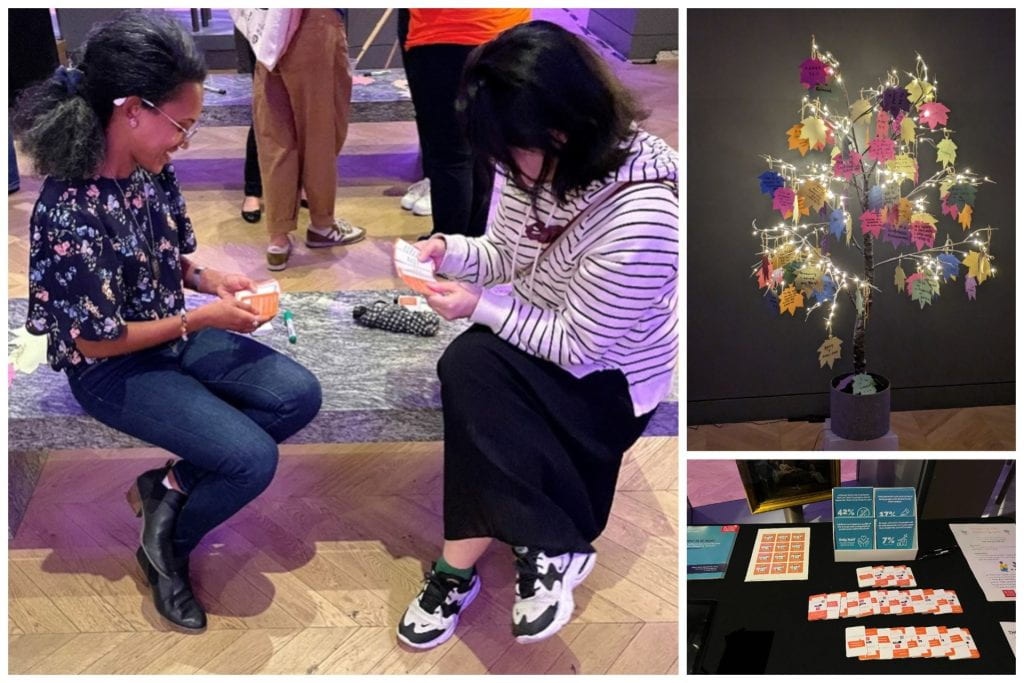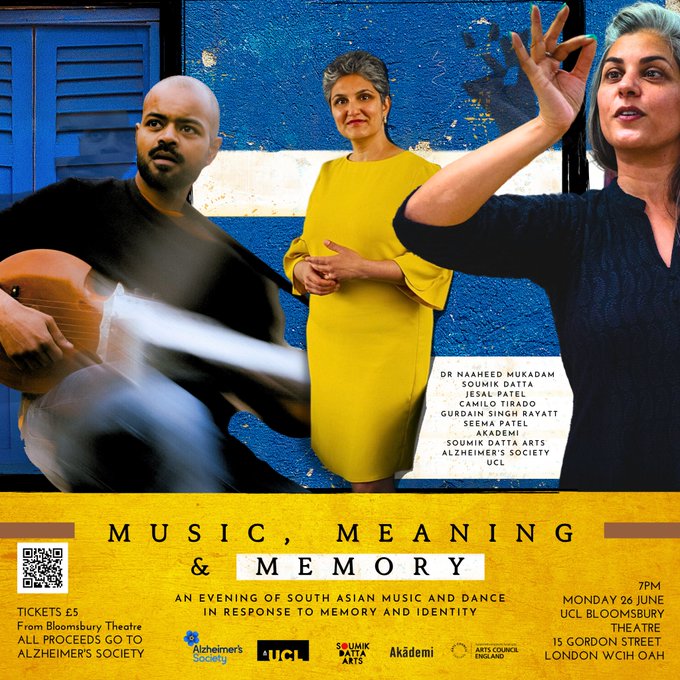How we talked to young adults about dementia and end-of-life care
By iomh, on 9 October 2023
Dementia and end of life care is a challenging topic to engage young adults with but the EMBED-Care team took the opportunity to do this by putting together an event for Science Museum Lates to engage young adults with these themes. Sophie Crawley describes their experiences.

The Science Museum in London is a well-known destination for families and children to spend a day looking at all things science related. A lesser-known aspect of the museum’s work are Science Museum Lates. These are primarily targeted as a young adult social event for groups of friends to attend. There is a lively and engaging atmosphere with music, DJs and a bar, while they explore the Museum’s regular exhibits after hours and engage with events and activities run by external groups centred around a specific science-related theme.
A conversation with the Science Museum about our work to improve the end-of-life care of people dying with or dying from dementia led to an offer to participate in a Lates event celebrating the 75th Anniversary of the NHS. This was a great opportunity to share our research with a young adult audience who may not have thought about dementia or the end of life, but who will be increasingly affected by dementia as the prevalence, and the need to care for those with a diagnosis, increases. It also gave all the EMBED-Care team from UCL and King’s College London an opportunity to collectively ‘have a go’ at public engagement.
(more…) Close
Close


